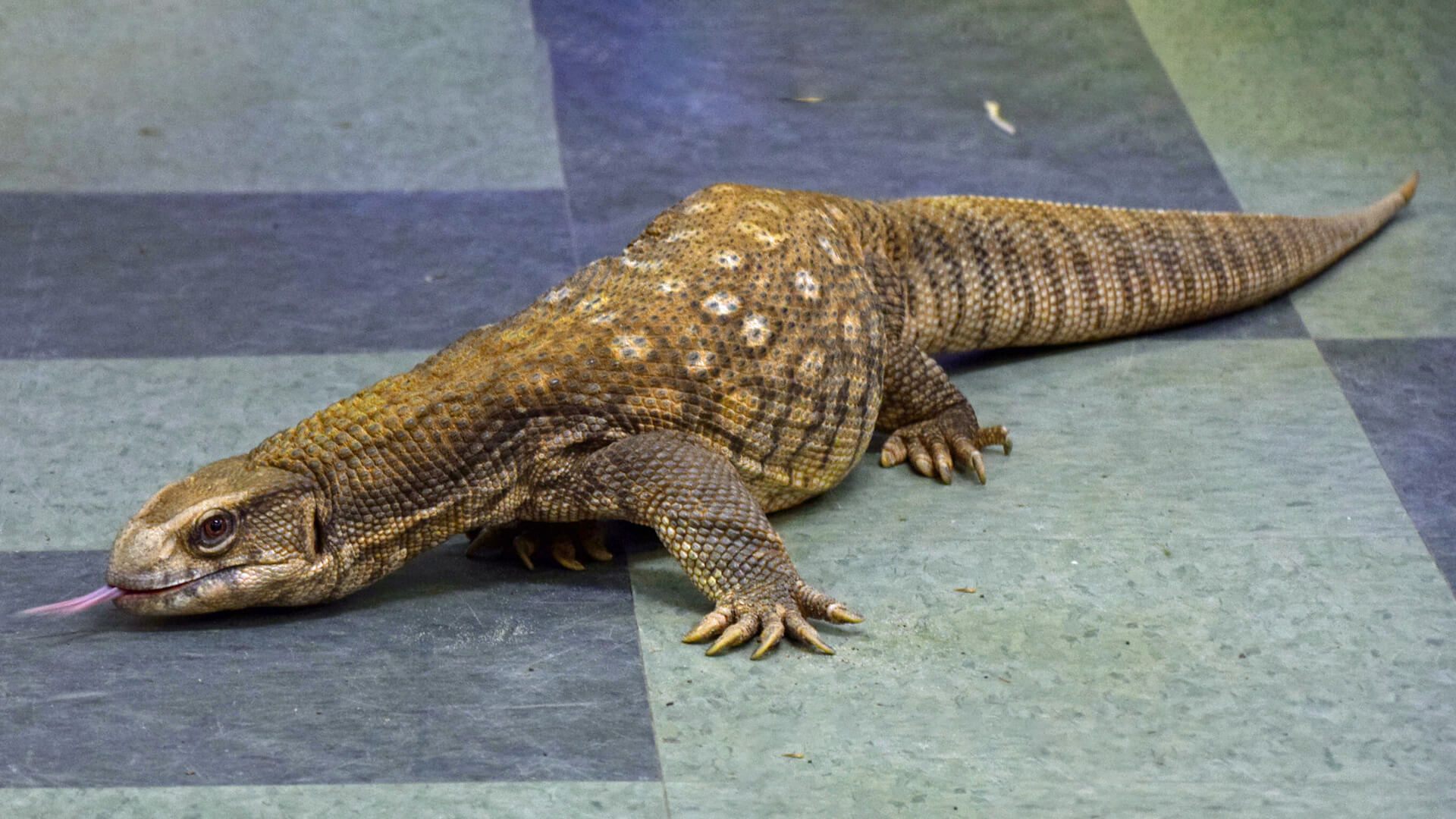Savannah Monitor Diet: What To Feed Your Pet Lizard

Savannah Monitor Diet: What To Feed Your Pet Lizard. Discover more detailed and exciting information on our website. Click the link below to start your adventure: Visit Best Website. Don't miss out!
Table of Contents
Savannah Monitor Diet: A Complete Guide to Feeding Your Pet Lizard
Owning a Savannah monitor is a rewarding experience for reptile enthusiasts, but providing proper care, especially regarding their diet, is crucial for their health and longevity. These impressive lizards have specific dietary needs, and understanding what to feed your Savannah monitor is key to ensuring a thriving pet. This comprehensive guide will delve into the intricacies of a Savannah monitor's diet, offering expert advice on appropriate foods, feeding frequency, and potential pitfalls to avoid.
Understanding Savannah Monitor Dietary Needs
Savannah monitors are carnivorous lizards, requiring a diet primarily consisting of animal protein. In the wild, their diet is diverse, encompassing a wide range of prey. Replicating this variety in captivity is essential for their well-being. A poorly planned diet can lead to nutritional deficiencies, metabolic bone disease (MBD), and other health problems.
What to Feed Your Savannah Monitor:
A healthy Savannah monitor diet should include a variety of the following:
- Insects: Crickets, roaches (dubia roaches are a popular choice), mealworms (in moderation), and locusts are excellent protein sources. Ensure insects are gut-loaded (fed nutritious food) before offering them to your lizard.
- Rodents: Pinkie mice and fuzzy mice (depending on the size of your monitor) can provide essential nutrients. However, these should be offered less frequently than insects, forming a smaller part of their overall diet.
- Other Protein Sources: Occasionally, you can supplement with other protein sources such as commercially available reptile food, but these should not be the primary component of their diet.
Important Considerations for a Balanced Diet:
- Gut Loading Insects: This is crucial! Feeding insects a nutritious diet before offering them to your monitor ensures your lizard receives essential vitamins and minerals. Good gut-loading foods include high-quality vegetables, fruits, and commercial insect diets.
- Calcium and Vitamin D3 Supplementation: Savannah monitors need adequate calcium and Vitamin D3 for proper bone development and overall health. Dusting their food with a high-quality reptile calcium and vitamin D3 supplement is essential, especially for younger lizards.
- Variety is Key: Avoid feeding your Savannah monitor the same food every day. A varied diet ensures they receive a broad spectrum of nutrients.
- Size of Prey: Always offer prey items that are appropriately sized for your monitor. Too large of a prey item can be difficult to swallow, while too small can lead to insufficient nutritional intake.
- Frequency of Feeding: The feeding frequency depends on the age and size of your Savannah monitor. Younger, growing lizards require more frequent feeding than adults. Consult with a reptile veterinarian to determine the appropriate feeding schedule for your pet.
Foods to Avoid:
- Processed foods: Avoid feeding your Savannah monitor any processed human food.
- Certain vegetables and fruits: While gut-loading insects with fruits and vegetables is beneficial, directly feeding your monitor large quantities of plant matter is not recommended. They are primarily carnivorous.
- Raw meat from unknown sources: This can introduce parasites and bacteria.
Signs of a Nutritional Deficiency:
Watch out for these signs indicating potential nutritional deficiencies:
- Lethargy: Lack of energy or unusual inactivity.
- Weak bones: Noticeable bowing of legs or other skeletal deformities.
- Poor shedding: Difficulty shedding skin.
- Loss of appetite: A significant decrease in food consumption.
Consult a Veterinarian:
If you notice any of the above signs, consult a veterinarian specializing in reptiles immediately. They can conduct a thorough examination and recommend the appropriate course of action. Regular vet checkups are also highly recommended for preventative care.
Choosing the right diet is crucial for the health and happiness of your Savannah monitor. By following these guidelines, you can ensure your impressive reptile thrives under your care. Remember to always consult with a reptile veterinarian for personalized advice.

Thank you for visiting our website wich cover about Savannah Monitor Diet: What To Feed Your Pet Lizard. We hope the information provided has been useful to you. Feel free to contact us if you have any questions or need further assistance. See you next time and dont miss to bookmark.
Featured Posts
-
 Tragoedie In Schweden Schuesse An Schule Fordern Opfer
Feb 05, 2025
Tragoedie In Schweden Schuesse An Schule Fordern Opfer
Feb 05, 2025 -
 Dispute Resolution Navigating Challenges With Allodial Titles
Feb 05, 2025
Dispute Resolution Navigating Challenges With Allodial Titles
Feb 05, 2025 -
 Actor Brian Murphy Dead At 92 Remembering His Iconic Role In George And Mildred
Feb 05, 2025
Actor Brian Murphy Dead At 92 Remembering His Iconic Role In George And Mildred
Feb 05, 2025 -
 Dominican Peso Dop To Usd Converter Real Time Rates
Feb 05, 2025
Dominican Peso Dop To Usd Converter Real Time Rates
Feb 05, 2025 -
 Samie Elishis Secret Dms A Love Island Scandal
Feb 05, 2025
Samie Elishis Secret Dms A Love Island Scandal
Feb 05, 2025
